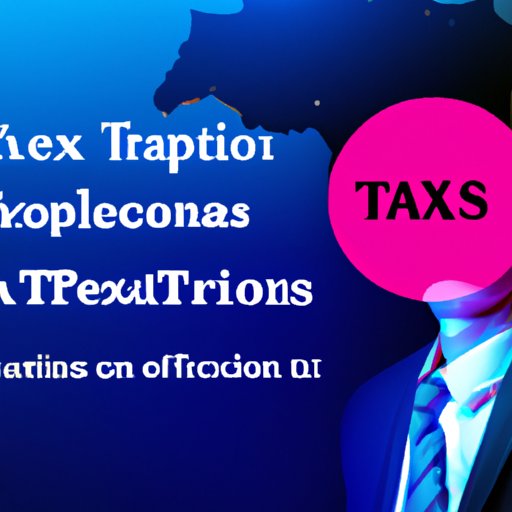Introduction
Cryptocurrency is a form of digital currency that uses cryptography to secure its transactions. It is decentralized, meaning it is not backed by any government or central bank. In recent years, cryptocurrency has become increasingly popular as more people are investing in it as a way to make money. As such, it is important to understand the taxation implications of cryptocurrency investments, especially when it comes to reporting them to the Internal Revenue Service (IRS).
How to Report Cryptocurrency Profits to the IRS
When it comes to reporting cryptocurrency gains to the IRS, there are several steps you need to take. First, you need to understand the different tax forms you need to file. The most commonly used form for reporting cryptocurrency profits is Form 8949, which is used to report capital gains and losses from all types of investments, including cryptocurrency. You will also need to use Schedule D to report your total gains or losses.
Once you have the forms you need, you can begin calculating your cryptocurrency gains and losses. This involves adding up all of your profits and losses from buying, selling, trading, and exchanging cryptocurrency. It is important to keep accurate records of all of your crypto transactions in order to accurately calculate your gains and losses.

An Overview of Cryptocurrency Tax Compliance Requirements
In addition to filing the appropriate tax forms, there are other cryptocurrency tax compliance requirements you need to be aware of. One of the most important is keeping records of all of your crypto transactions. This includes purchases, sales, trades, and exchanges of cryptocurrency. It is important to keep detailed records of all of your crypto transactions so that you can properly report them to the IRS.
You also need to be aware of the different tax rates for crypto gains. Generally, short-term gains (gains realized within one year) are taxed at ordinary income tax rates, while long-term gains (gains realized after one year) are taxed at lower capital gains tax rates. It is important to understand these different tax rates and how they apply to your crypto investments.

Common Mistakes to Avoid When Reporting Cryptocurrency Gains to the IRS
When reporting cryptocurrency gains to the IRS, there are some common mistakes that taxpayers should try to avoid. One of the most common mistakes is not keeping accurate records of all of their crypto transactions. Without accurate records, it can be difficult to properly report your crypto gains and losses to the IRS. Additionally, it is important to report all of your crypto transactions, even if they resulted in a loss. Failing to report all of your crypto transactions can lead to significant penalties from the IRS.
Another mistake to avoid is failing to report income from forks or airdrops. Forks occur when a blockchain splits into two separate blockchains, and airdrops involve the distribution of free coins to holders of certain cryptocurrencies. Both of these events can result in taxable income, so it is important to report them to the IRS.
What Records Should You Keep for Crypto Tax Reporting?
In order to properly report cryptocurrency gains to the IRS, it is important to keep track of all of your crypto trades, purchases, and sales. This includes tracking the date of the transaction, the amount of the transaction, and the type of transaction (buy, sell, trade, or exchange). Additionally, you should document all of your crypto-related expenses, such as fees and commissions paid to brokers or exchanges. Keeping accurate records of all of these transactions will make it easier to properly report your crypto gains to the IRS.

How Taxpayers Can Benefit from Professional Crypto Taxation Services
For those who are unfamiliar with the complexities of cryptocurrency taxation, it may be beneficial to work with a professional tax consultant. Professional crypto taxation services can help you navigate the intricacies of crypto taxation and ensure that you are correctly reporting your gains and losses to the IRS. Working with a professional tax consultant can also help you minimize your tax liability and maximize your returns.
Conclusion
Cryptocurrency has become increasingly popular in recent years, and it is important to understand the taxation implications of investing in it. This article provided an overview of important crypto taxation requirements and tips on how to properly report crypto gains to the IRS. By understanding the tax forms you need to file and keeping detailed records of your crypto transactions, you can ensure that you are correctly reporting your crypto gains to the IRS. Additionally, working with a professional tax consultant can help you maximize your returns and minimize your tax liability.
(Note: Is this article not meeting your expectations? Do you have knowledge or insights to share? Unlock new opportunities and expand your reach by joining our authors team. Click Registration to join us and share your expertise with our readers.)
